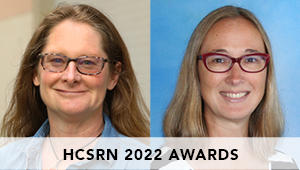Mental Health
Research overview
Mental health is a vital part of overall health. But traditional mental health care reaches only a fraction of the millions who could benefit. So, researchers at Kaiser Permanente Washington Health Research Institute (KPWHRI) are finding practical, patient-centered ways to reach people affected by conditions such as depression, bipolar disorder, and anxiety.
“Many of the ideas that are changing American mental health care were first tested here at Kaiser Permanente Washington,” said Gregory Simon, MD, MPH, senior investigator at KPWHRI and a Kaiser Permanente Washington psychiatrist. “We’re now working to spread those innovations to large health systems across the country.”
Some of the mental health research group’s current projects include:
- Conducting research to optimize firearm suicide prevention in health care
- Developing methods to reduce racial and ethnic disparities in suicide risk prediction
- Expanding a program to reduce the burden for caregivers of patients with a dementia diagnosis
- Testing an intervention to guide earlier access to services for youth with symptoms or concerns related to their mental health
- Reducing suicide attempts among high-risk teens and young adults
- Testing interventions for variables associated with dementia risk, such as depression and social isolation, in elderly patients
- Developing a model to predict risk of a psychosis spectrum disorder diagnosis
- Improving tailoring of depression care using customized clinical decision support
- Studying how peer support is being used to support youth mental health
Innovative patient-centered mental health programs developed at KPWHRI include:
- Using collaborative care to integrate depression mental health care with general medical care
- Developing flexible, patient-centered psychotherapy programs organized around people’s preferences and values and delivered online or by phone
- Identifying and addressing racial and ethnic disparities in mental health treatment
- Tailoring depression programs for people with other health conditions (diabetes, heart disease, obesity)
- Using technology such as the web and secure email for outreach and care coordination
- Facilitating earlier identification of people at risk for self-harm or suicide attempts
- Improving physical health in people with severe mental health problems
- Combining peer support with professional treatment for mood disorders
- Broadening the focus of mental health treatment from symptom management to recovery
- Activating mental health patients to be more knowledgeable and assertive
- Reducing use of high-risk medications in both children and older adults
- Collaborating with health systems through the national Mental Health Research Network to systematically measure and improve outcomes of care
“We are partnering with health care leaders at Kaiser Permanente Washington and other health systems to test innovative programs and implement treatments that work,” Simon said. “We want ‘learning health care system’ to be more than a slogan.”
Recent publications on Mental Health
Chapman CR, Lipschitz DL, Angst MS, Chou R, Denisco RC, Donaldson GW, Fine PG, Foley KM, Gallagher RM, Gilson AM, Haddox JD, Horn SD, Inturrisi CE, Jick SS, Lipman AG, Loeser JD, Noble M, Porter L, Rowbotham MC, Schoelles KM, Turk DC, Volinn E, Von Korff MR, Webster LR, Weisner CM. Opioid pharmacotherapy for chronic non-cancer pain in the United States: a research guideline for developing an evidence-base. J Pain. 2010 Sep;11(9):807-29. Epub 2010 Apr 28. PubMed
Richardson LP, Rockhill C, Russo JE, Grossman DC, Richards J, McCarty C, McCauley E, Katon W. Evaluation of the PHQ-2 as a brief screen for detecting major depression among adolescents. Pediatrics. 2010;125(5):e1097-103. Epub 2010 Apr 5. PubMed
Katon W, Lin EH, Von Korff M, Ciechanowski P, Ludman E, Young B, Rutter C, Oliver M, McGregor M. Integrating depression and chronic disease care among patients with diabetes and/or coronary heart disease: the design of the TEAMcare study. Contemp Clin Trials. 2010 Jul;31(4):312-22. Epub 2010 Mar 27. PubMed
Katon W, Richardson L, Russo J, McCarty CA, Rockhill C, McCauley E, Richards J, Grossman DC. Depressive symptoms in adolescence: the association with multiple health risk behaviors. Gen Hosp Psychiatry. 2010;32(3):233-9. Epub 2010 Mar 1. PubMed
Ludman EJ, Ichikawa LE, Simon GE, Rohde P, Arterburn D, Operskalski BH, Linde JA, Jeffery RW. Breast and cervical cancer screening specific effects of depression and obesity. Am J Prev Med. 2010;38(3):303-10. PubMed
Researchers in Mental Health
 Gregory E. Simon, MD, MPHSenior Investigator |
 Ben Balderson, PhDSenior Collaborative Scientist |
 Katharine A. Bradley, MD, MPHSenior Investigator |
 Paula Lozano, MD, MPHSenior Investigator; Director, ACT Center |
 Robert Penfold, PhDSenior Investigator |
 Susan M. Shortreed, PhDSenior Biostatistics Investigator |
 Dori E. Rosenberg, PhD, MPHSenior Investigator |
 Gwen Lapham, PhD, MPH, MSWAssistant Investigator |
 Jennifer F. Bobb, PhDAssociate Biostatistics Investigator |
 Julie Angerhofer, PhD, MPHAssociate Investigator |
 Paige D. Wartko, PhD, MPHSenior Collaborative Scientist |
 Yates Coley, PhDAssociate Biostatistics Investigator |
 Abisola Idu, MS, MPHCollaborative Biostatistician |
 Eric Johnson, MSSenior Collaborative Biostatistician |
 Rod L. Walker, MSPrincipal Collaborative Biostatistician |
 Robert D. Wellman, MSPrincipal Collaborative Biostatistician |
 Leah K. Hamilton, PhDSenior Collaborative Scientist |
 Brian D. Williamson, PhDAssistant Biostatistics Investigator |
 Rosemary Meza, PhD, MSCollaborative Scientist |
 Morgan Justice, MACollaborative Scientist |
 Theresa E. Matson, PhD, MPHCollaborative Scientist |
 Lily N. Shapiro, PhDCollaborative Scientist |
Affiliate researchers in mental health
Paul Crane, MD, MPH
Professor, Internal Medicine
University of Washington
Patrick Heagerty, PhD
Professor and Chair, Department of Biostatistics
University of Washington
Laura P. Richardson, MD, MPH
Adolescent Medicine
Seattle Children's Hospital
Professor, Department of Pediatrics
University of Washington
Noah R. Simon, PhD
Assistant Professor, Biostatistics
University of Washington
Principal Investigator, Therapeutics Development
Seattle Children’s Research Institute
Emily Williams, PhD, MPH
Investigator
Health Services Research & Development
VA Puget Sound Health Care System


















